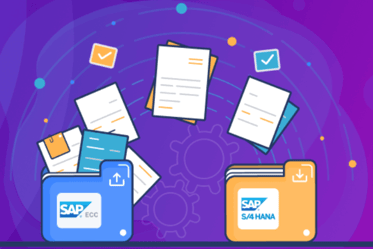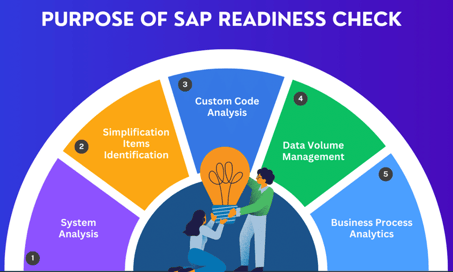ERP MIGRATION
Now is the ideal moment to embark on your SAP S/4HANA migration venture. Although the migration journey may appear challenging, transitioning to SAP S/4HANA will offer your organization a streamlined and powerful method to handle business processes, ensuring competitiveness in the rapidly evolving digital landscape.


SAP's discontinuation of ECC support by 2027 is a clear signal that it's time to consider transitioning to S/4HANA if you're still using it. The 2027 deadline is approaching rapidly, and the migration process is a substantial undertaking that requires significant time and effort.
HH Consulting Services & Solutions Corp is well-equipped to support you on this demanding journey, boasting over 25 years of expertise in this domain. We stand ready to offer guidance and assistance on migration-related subjects such as:
· Familiarization with S/4HANA (Versions)
To ensure a smooth transition from SAP ECC to S/4HANA, it's crucial for ECC users to become familiar with the new system. This involves hands-on exploration of S/4HANA's features, functionalities, modules, and workflows. Understanding the capabilities of S/4HANA is essential for maximizing its benefits, and also helps you to choose the right deployment option among the different versions of S/4HANA.
On-Premise
On HEC
Public/Private Cloud
· Data Analysis and Classification
This is essential for optimizing the migration process, because not all data needs to be migrated. So, deciding how much data needs to be transferred from your ECC database to S/4HANA is a crucial step when preparing for system conversion.
Hot data
Warm data
Cold data
· Data Cleansing
After segregating data, the critical step of data cleansing comes into play. This process involves refining and enhancing the quality of data to ensure accuracy and reliability during migration.
· Duplicate Removal
Identify and eliminate duplicate records to prevent redundancy and data inconsistency.
· Standardization
Normalize data formats, units, and values for consistency across the dataset.
· Validation
Verify data accuracy by validating against predefined rules and criteria.
· Enrichment
Augment data with additional information to enhance its completeness and relevance.
· Correction of Errors
Rectify any inaccuracies or errors in the data, ensuring it aligns with quality standards.
· Readiness Check
SAP Readiness Check is a tool designed to assess the compatibility and readiness of a system for specific SAP upgrades or migrations. It provides an overview of how well the current system aligns with the target applications, helping organizations plan and execute digital transformation effectively.
Why Classify Data?
· Efficiency
Not all data needs to be migrated, preventing unnecessary strain on resources.
· Performance
Ensures that crucial data is readily available in the live system for optimal performance.
· Cost-Effectiveness
Reduces storage costs by archiving cold data rather than migrating it.


Initiation
Start the readiness check through SAP tools or cloud services.
Data Collection
Collect system data, including configurations, custom code, and usage statistics.
Analysis
Utilize the collected data to perform a comprehensive analysis, generating a detailed report.
Dashboard and Recommendations
Provides a user-friendly dashboard summarizing results and offering recommendations for a successful migration.

